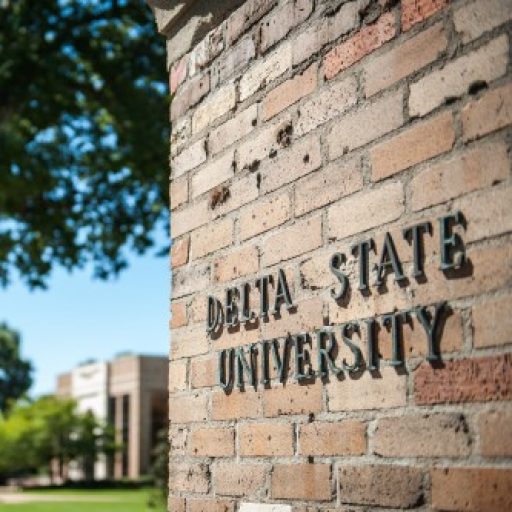
CLEVELAND, Miss. — Delta State University’s Division of Mathematics and Sciences has been the recipient of three grants this year from the Mississippi IDeA Network of Biomedical Research Excellence (INBRE). The grants total over $68,000 and will allow the purchase of equipment and software for conducting research and enhancing teaching in chemistry and biology courses.
Dr. Joseph Bentley, Interim Chair of the Division of Mathematics and Sciences and Professor of Chemistry, received $16,640 for his study, Enhancing Instruction Using Videos/Animations of Molecular and Crystalline Models. Dr. Christopher Jurgenson, Associate Professor of Biochemistry, received $19,914 for Computational and Modeling Software for Enhancing Research and Instruction in Chemistry. These two awards are 100% funded by Mississippi INBRE, which is funded by an Institutional Development Award (IDeA) from the National Institute of General Medical Sciences of the National Institutes of Health (NIH). Additionally, the two professors also collaborated on Enhancing Molecular Structure Education with a Tabletop NMR, which was awarded a grant of $31,737 or 50% of the total cost and a non-federal match of $31,737 will cover the remaining 50%.
Jurgenson said, “We are very grateful for INBRE’s continued support of our teaching and research projects in the Division of Mathematics and Sciences. The nuclear magnetic resonance spectrometer (NMR) replaces our old machine that had to be decommissioned last year due to the increasing cost and decreasing availability of liquid helium required to maintain the superconducting magnet. The new NMR can operate at room temperature and is ideally suited for academic instruction in chemistry courses that serve both our biology and chemistry majors.”
The software that will be purchased with INBRE funding includes ChemDoodle, which can predict NMR spectra, and Gaussian, which can calculate NMR spectra based on theoretical quantum mechanical methods and has many other molecule building features. Funds are also allocated for cameras to film lab procedures for students to watch as part of their pre-laboratory preparation in general chemistry laboratory courses.
Jurgenson said, “INBRE was willing to match the grant funds necessary for the NMR since it is an expensive piece of equipment. We were able to use funds donated by Joe Baker in 2020 for the purchase of equipment to provide the match.”
INBRE is a network of colleges and universities, designed to build a biomedical research infrastructure in Mississippi. According to their website, their mission is to reach out to Mississippians in order to improve health throughout the state and to engage talented researchers and students in biomedical research projects that will increase the state’s research competitiveness as well as impact the health of citizens of Mississippi. For more information about INBRE, visit their website at https://msinbre.org/.
For more information about the Delta State University College of Arts and Sciences and the Division of Mathematics and Sciences, visit www.deltastate.edu.

